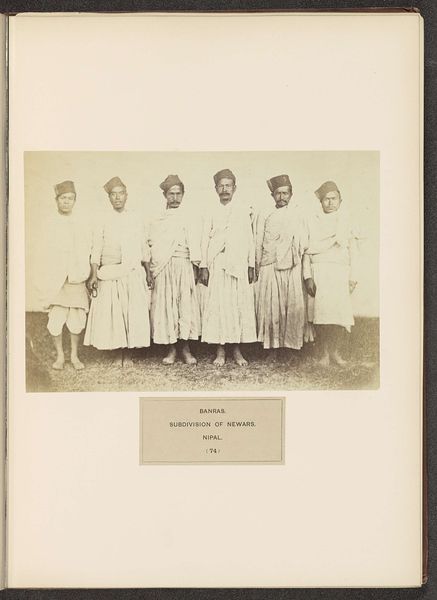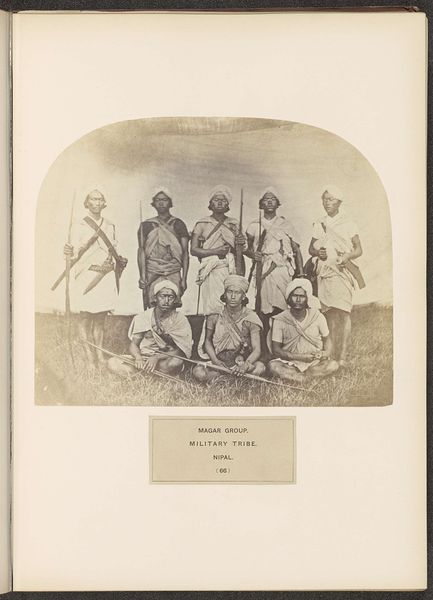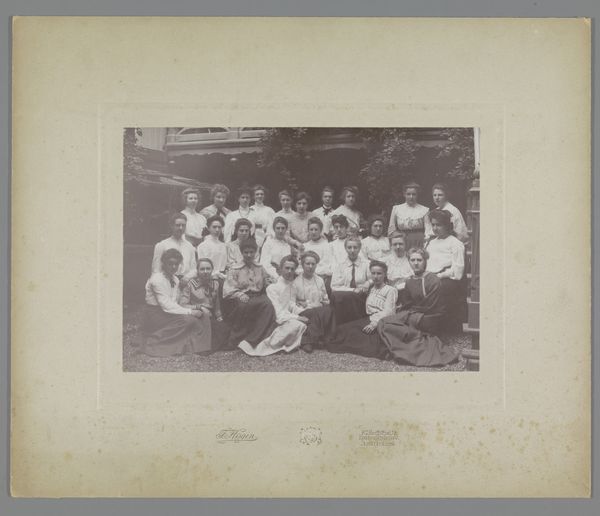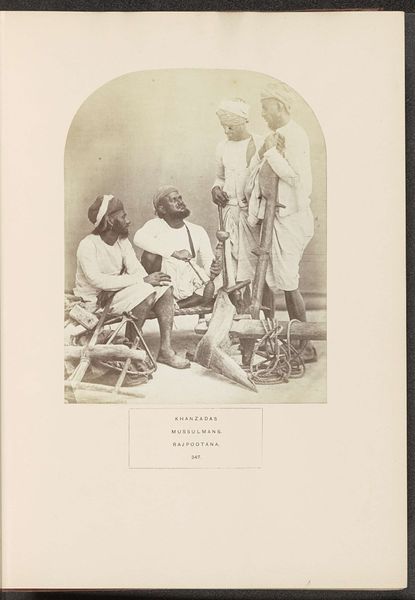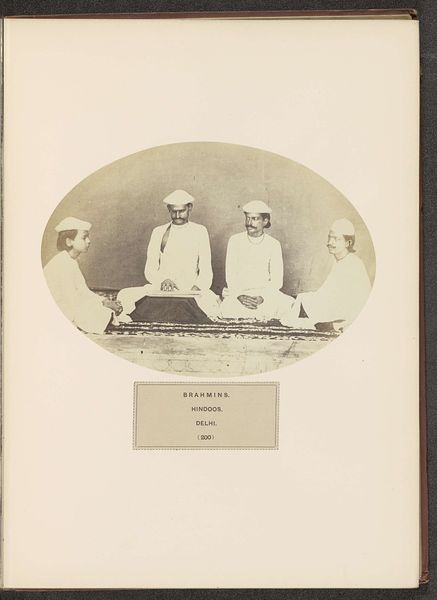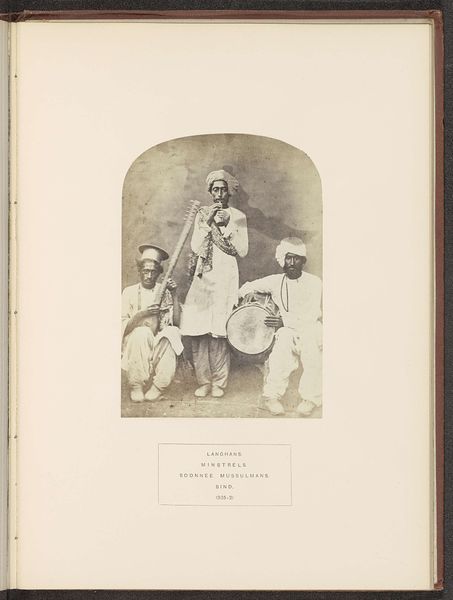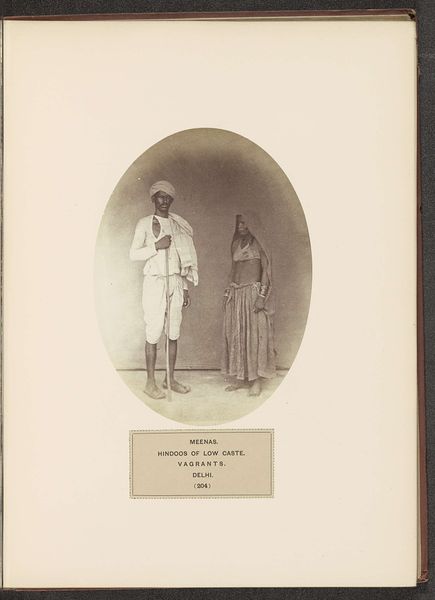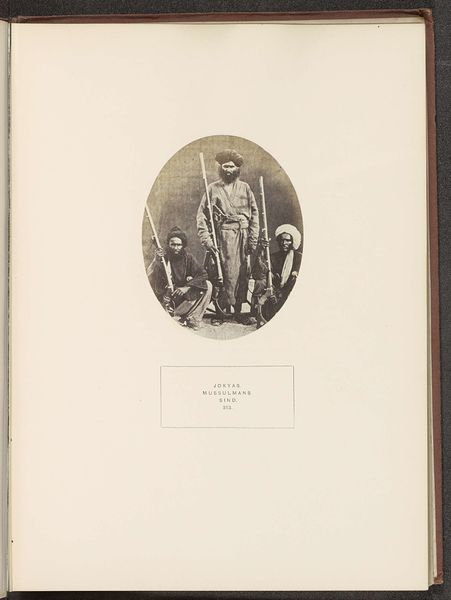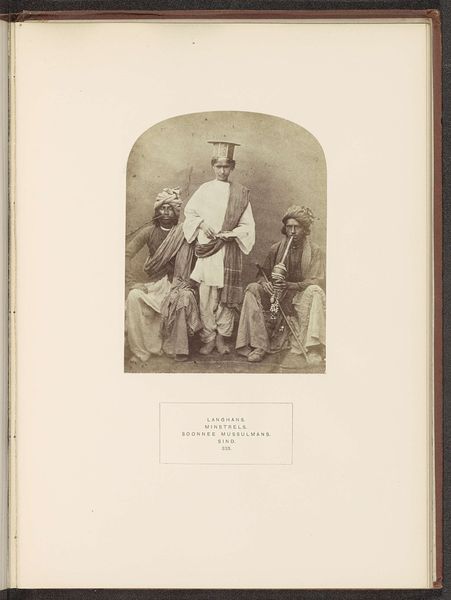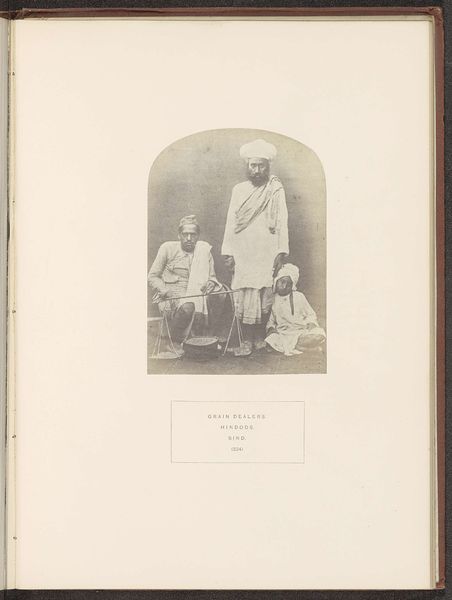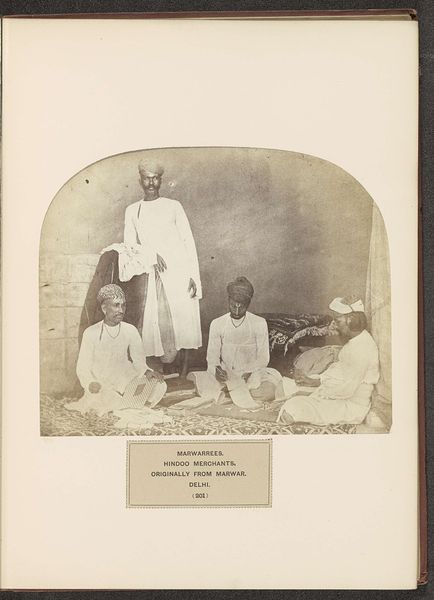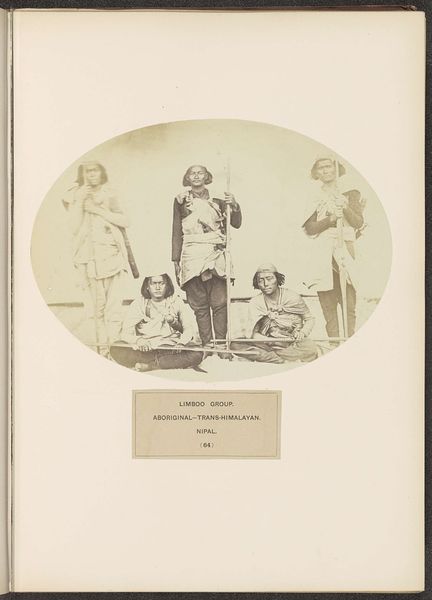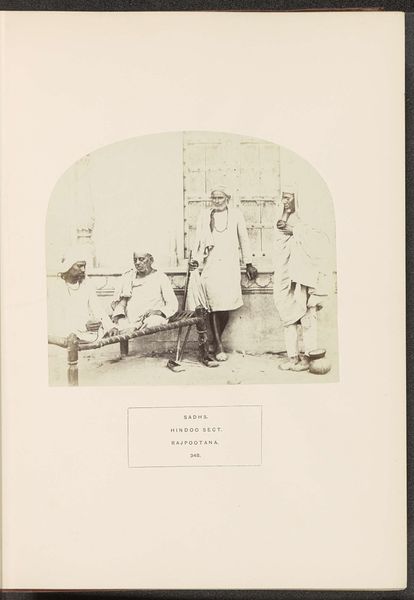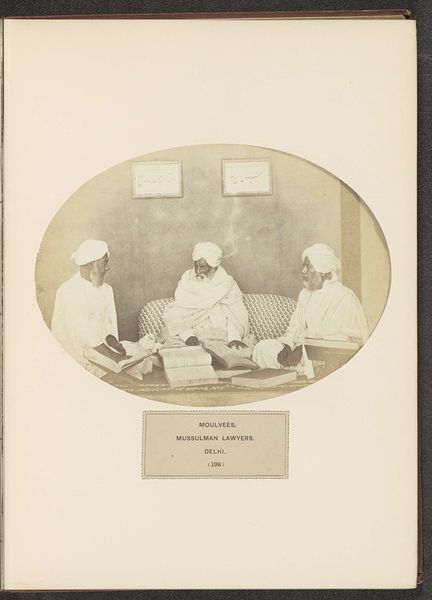
albumen-print, photography, albumen-print
#
albumen-print
#
portrait
#
aged paper
#
light pencil work
#
asian-art
#
old engraving style
#
figuration
#
photography
#
personal sketchbook
#
ink drawing experimentation
#
pen-ink sketch
#
sketchbook drawing
#
watercolour illustration
#
storyboard and sketchbook work
#
sketchbook art
#
albumen-print
Dimensions: height 137 mm, width 207 mm
Copyright: Rijks Museum: Open Domain
Editor: This is "Portret van tien Gurung strijders uit Nepal" (Portrait of Ten Gurung Warriors from Nepal), attributed to Benjamin Simpson, dating from before 1868. It’s an albumen print photograph. What strikes me most is its documentary feel and, of course, the sitters' elaborate garments. What can you tell us about it? Curator: It's crucial to consider the albumen print itself, the labor involved in its production and how its materiality informed its reception. This photograph wasn’t simply a neutral recording; it was a crafted object circulated within a specific colonial context. Note the soldiers' meticulously arranged attire: sashes, headwear, and weaponry – all are visually emphasized. How do you think these carefully presented material details played into British perceptions of the Gurung people? Editor: Perhaps to project a sense of order, power, or exoticism that would both impress and subjugate? It seems the photographer’s and British audiences' intention in circulation impacts meaning, and it is a photograph, so it has to do with some type of material that captured this event or scene. I guess that makes sense. Curator: Exactly. Consider the materiality of the photograph against the social and political backdrop of the British Empire. It represents a system of power relations expressed and maintained through material means. We could also discuss the global trade networks needed to acquire photographic supplies like glass plates and chemicals. Editor: So it becomes more than just a picture, but evidence of complex systems. Curator: Precisely. Understanding the materials and the means of production helps us understand the ideology embedded within the image itself. Editor: I’ll definitely think about photographs, and really, any art, differently now. Thanks for the material insight!
Comments
No comments
Be the first to comment and join the conversation on the ultimate creative platform.
